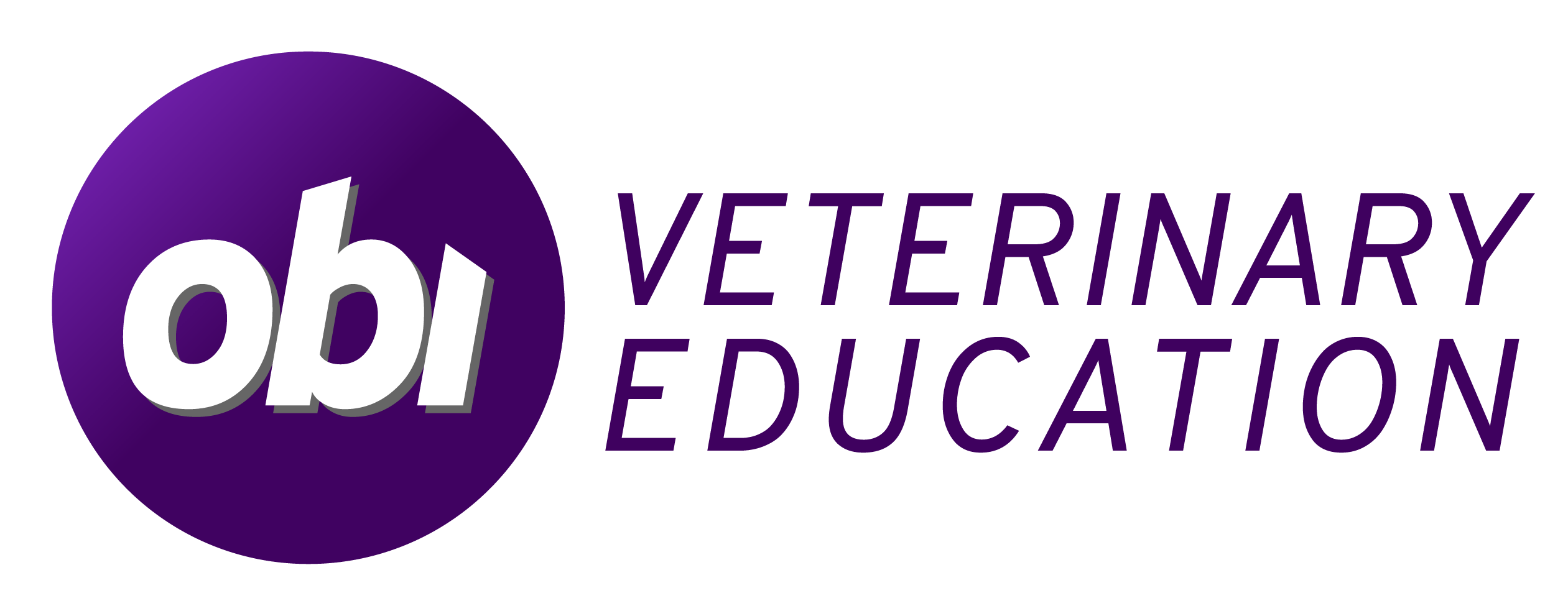
The onus for wellbeing in veterinary medicine should be on organizations not individuals
The past few months I have been thinking a lot about the wellbeing in veterinary medicine and the crisis our profession is in. What it means, what we can do about it, those kind of things. But if you are looking for a list of things you can do to improve your life, find balance, and be able to cope with the daily onslaught which is being a veterinarian in 2022, you won’t find it here. In fact, my entire purpose here is to suggest that those types of posts, and the way in which the conversation about wellbeing in veterinary medicine happens, needs to change.
The current conversation on wellbeing in veterinary medicine
Right now, most of the conversation about wellbeing in veterinary medicine, as it comes from professional bodies, companies and veterinary blogs centers around what individuals can do to practice self care and increase their own wellbeing. The lists will often include items such as, meditate, journal, practice yoga, exercise, get outside, socialize with friends, or my personal favorite – ensure you take a pee break.
All of these are good ideas. Things that I personally support and agree that every veterinary professional should do. But what is missing from the conversation are the external factors outside the individual’s control which makes it difficult, and in some cases impossible to practice self care on a regular basis.
The problem with the current conversation on wellbeing in veterinary medicine
When my partner, a veterinary specialist in private practice, gets home from work I don’t ask, “how was your day?” Instead I ask, “Did you get to eat lunch today?” It is the metric we have chosen to assess how bat-shit crazy her day was. How many extra appointments got packed in? How many irate clients were on the phone? Whether there was enough technical and administrative support for her to practice medicine and get to eat lunch.
The professional culture in most practices does not facilitate the possibility of self care. Veterinary clinics are understaffed, veterinary professionals are underpaid, and are overworked. All in all, this means that for most there is not enough time to develop appropriate self care habits. There is little value in writing blog posts and giving webinars on self care before we have created systemic shifts needed to facilitate wellbeing in our profession.
I am willing to bet that every veterinary professional knows the things they need to do for self-care at this point. We don’t need to tell people that they need to spend time exercising, eating well, and sleeping 8 hours a night. We certainly do not need a reminder for normal bodily functions, we just need time in the day to pee.
While both individuals and organizations have responsibility when it comes to wellbeing, the conversation needs to evolve away from the onus being placed on the individual. It is time for organizations to step up to lead the change.
Individual responsibilities for wellbeing in veterinary medicine
In my opinion, individuals are only responsible for three things when it comes to their wellbeing; awareness, acceptance and prioritization. What I mean by this is that individuals need to be aware of the need for self care, they need to be accepting of necessary training which is provided during working hours and they need to prioritize wellbeing. But the simple fact is that an individual cannot practice self care when they are already too burnt out. It should not be the responsibility of the individual to pack self care into an already unacceptably full schedule. It should not be up to the individual to practice enough meditation to stop caring about their understaffed work place or the pets and people they have left behind.
Notice here that the space needs to be created within the profession. Veterinary professionals need to have time during working hours and bandwidth in their schedules to be able to improve their wellbeing. Creating this space can only be done by systemic change at an organizational level.
Organizational responsibilities for wellbeing in veterinary medicine
My belief is that the onus should be on organizations to create cultures that truly promote wellbeing, not pay lip service to it, because the profession is in a crisis that no amount of yoga is going to fix. This requires a systemic shift in the way practices operate, the support systems offered by VMAs and the types of peripheral support offered by para-veterinary organizations.
Changing Priorities
There are organizations out there with their priorities straight. But the experience that so many have felt in this profession are that profits are top of the list at the clinic level and patients are at the top of the list for VMAs and other organizations. Every organization needs to put its own people first. While this might sound like nails on a chalkboard to leadership and management, I see it two ways, either keep the status quo and run people into the ground and out of the profession or make large scale meaningful changes to put people first. Priorities should look like this.
- Staff
- Patients
- Clients
- Profits
Clinics:
I know there are a ton of amazing practice managers out there who protect their staff. But staff need to come first in a more meaningful way across the profession. At the clinic level, this means they need to be paid more and they need to work less. A culture of fitting in extra clients, working late, and using out dated technology is eating away at the profession.
Here is my perfect practice wish list:
- Appropriately staffed workplaces with better pay
- Paid parental leave
- Dictation software to be able to write records effectively
- An EMR that works
- A dedicated tech and an assistant for each DVM.
- Time built into the day for professional development
- Time built into a day for callbacks.
- Everyone gets a lunch and at least two breaks.
The medical education platform Figure1 posted a recent blog exploring this same concept in human health. They point to the Job Demands-Resources model of burnout which helps understand that burnout occurs when the job demands exceed the resources available. This describes the reality in way too many veterinary clinics all too well. And just because it did not affect past generations of veterinarians in the same way does not make it any less real today. Veterinarians should not be expected to practice with the same systems, mindset and practice set ups today as they did 10 years ago let alone 20, 30 or 40 years ago. Providing more resources means that individual clinics will be a little less profitable. But that is a reality every clinic needs to face. Only after all that work is done should the conversation shift to workplace meditation sessions.
VMAs and Organizations
The AVMA has a number of excellent resources for members, a shining example of which is the AVMA Workplace Wellbeing Certificate Program. This is a great start. But the onus is still on the individual to find this resource, to find time to do it, and to implement it. VMAs must advocate for more dedicated space for veterinary wellbeing at work not in a veterinarian’s free time. This is especially true now that so many veterinarians work for a corporation or large practice group. We are no longer a profession of small businesses. We are a profession of employees, and so the advocacy from our VMAs must shift.
The priorities of veterinary professionals now differ from those of veterinary practices, and so the advocacy from our professional body must support us over the clinics we work for. More protections are needed for veterinary professionals to ensure a working environment which promotes wellbeing. Position statements and policies which support veterinarians rather than just animals are vital at this point.
Here is my wish list for veterinary organizations:
- Position statement ensuring all veterinary interns and residents are paid fairly (and by fairly I mean at least 60-80K a year).
- Position statement limiting working hours and making breaks mandatory
- Position statement on what suite of technologies constitute appropriate support for practice in a modern medical environment.
- Public campaigns explaining the cost of veterinary care
- Public campaigns and lobbying to prevent cyber bullying and unfair attacks from angered clients
- Accreditation guidelines for mandatory lunch breaks, mandatory doctor to staff ratios
Peripheral Organizations
If you are involved in veterinary medicine, it is your obligation to think about how you might be able to do things differently to support veterinary professionals. At Obi, we are trying with a different style of CE, providing free resources, and directly supporting non-profits doing incredible work. Every group is going to do it differently, but it is time to get creative.
Here is a free idea for every food and drug company: instead of sponsoring a lunch and learn, just sponsor a lunch. Give the hardworking staff a chance to eat, shut their brain off, and make meaningful connections with themselves and their colleagues.
Systemic change is the only path to wellbeing
No amount of self care is going to fix burn out, compassion fatigue, moral injury and a professional culture which has failed to prioritize wellbeing for far too long. Individuals cannot promote their own wellbeing without the time, space and bandwidth to do so. Until a systemic change happens to create the space and resources for veterinary professionals, all the top ten self care lists will fall on burnt out, over burdened, tired ears.
We need large scale solutions and culture changes. If you want to write about wellbeing in veterinary medicine, please, write about the systemic changes we need and offer organizational solutions. If you have a voice, raise it to ask more of organizations, not individuals. We must give veterinary professionals the space to practice good medicine, give them the tools to do it well, and most importantly give them space away from work. Leaders of organizations should not be scared to act in bold meaningful ways. Do something different, even if that something costs more.






I appreciate your stance on this complex issue and especially liked that you included practical and achievable solutions. This article really resonated with me and I look forward to seeing more great things come out of Obivet.
Thanks Robert! Glad you liked it and appreciate the kind words.